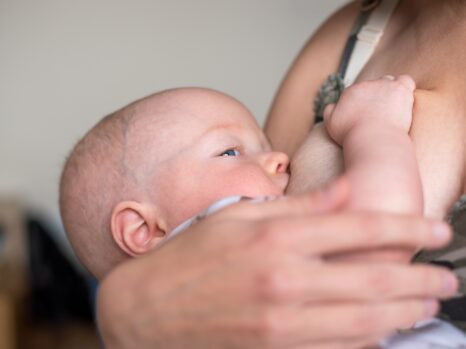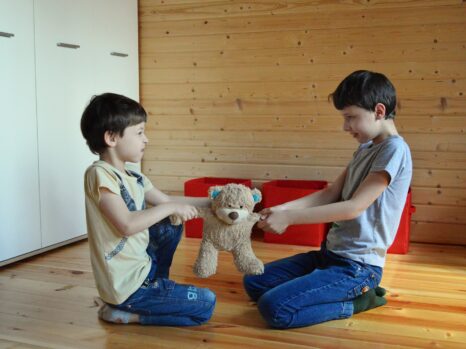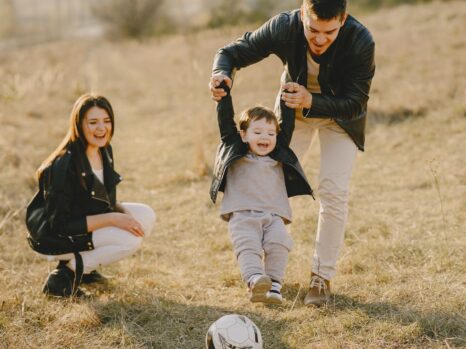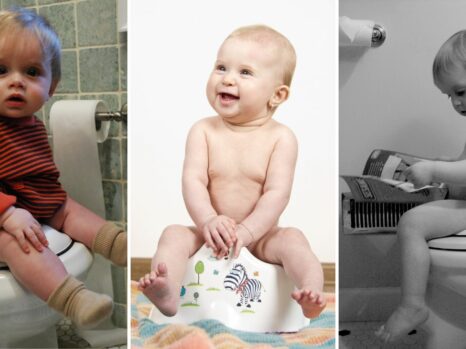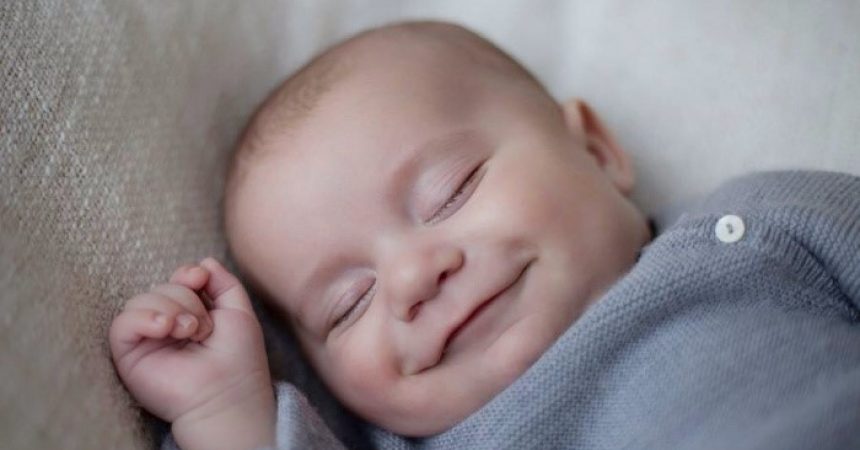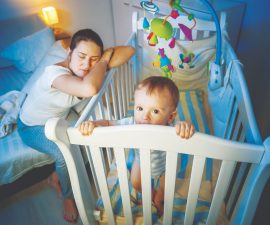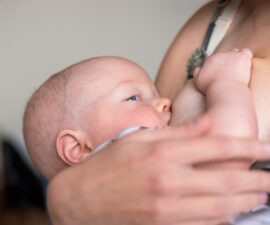If you are wondering how to get your baby to sleep, you are not alone. New parents go through a lot as they try to settle their little ones to sleep.
Getting a baby to sleep is a process that is never perfect. It is a matter of trying different tips and embracing the ones that work well for your baby.
our today’s article is detailed enough to help you understand this whole topic on baby’s sleep.
Before we even get the baby to sleep, it is good we understand the number of hours babies and children need to spend asleep. Examine this table briefly.
| AGE BRACKET | SLEEP HOURS | |
| Infants | Under 1 year | 12-16 |
| Children | 1-2 | 11-14 |
| Children | 3-5 | 10-13 |
| Children | 6-12 | 9-12 |
Here are tips you should try to get your baby to sleep. We have split them into two categories; general tips and natural ways. Let’s jump right in!
GENERAL TIPS TO GET A BABY TO SLEEP
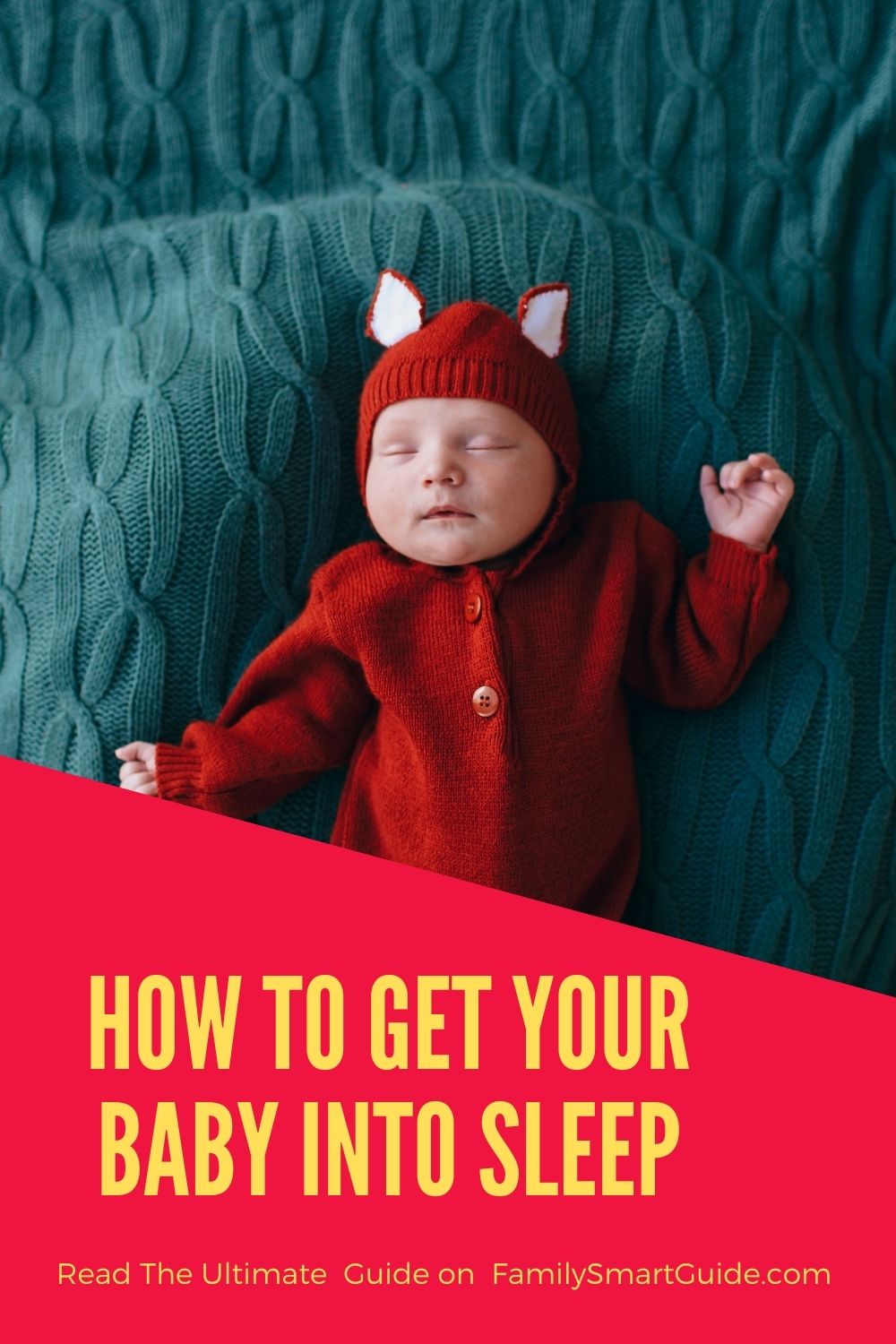
Create A Solid Routine
Babies should have a consistent sleeping ritual as early as 3 months. Routines are excellent tools to help babies settle down before sleeping.
Even though they are still young, their brains grasp the tendency that is created. Getting a baby to sleep at familiar intervals is easy.
Having an inconsistent routine may overstimulate the baby making it more difficult to settle the baby.
Understand Your Baby
Your baby might have some natural patterns which can be difficult to control. He or she might be an early bird or a night howl. Adjust your routine with respect to this. Don’t get stuck trying to google on how to get baby to sleep longer stretches at night while he enjoyed his night during the daytime.
Don’t Feed to Sleep
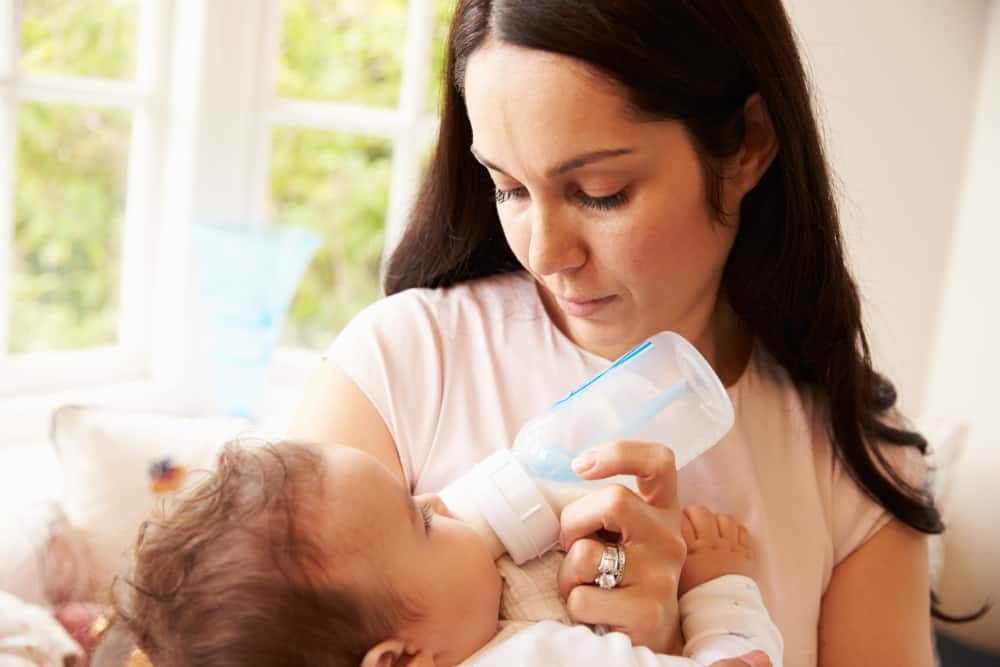
Newborns tend to fall asleep while being fed. With time, they develop a thinking that they need to eat to get back to sleep. In such scenarios, baby only sleeps for a few minutes and wakes up.
If you really intend to get the baby to sleep for longer periods, combat this issue at early stages. Gradually, start ensuring that the baby stays awake for some minutes after feeding.
Bedtime Stories and Lowkey Music
A study says that as early as week one, babies have a physiological response to the sounds in the environment surrounding them. Even if the baby can’t understand what you saying, gently story tell or sing a lullaby.
Soothing sounds from cool music can help the baby relax for some sleep. Research conducted by The St John Hopkins University shows that babies are likely to fall asleep three times faster when a soothing sound is playing in the background.
Let the Baby Sleep When Full
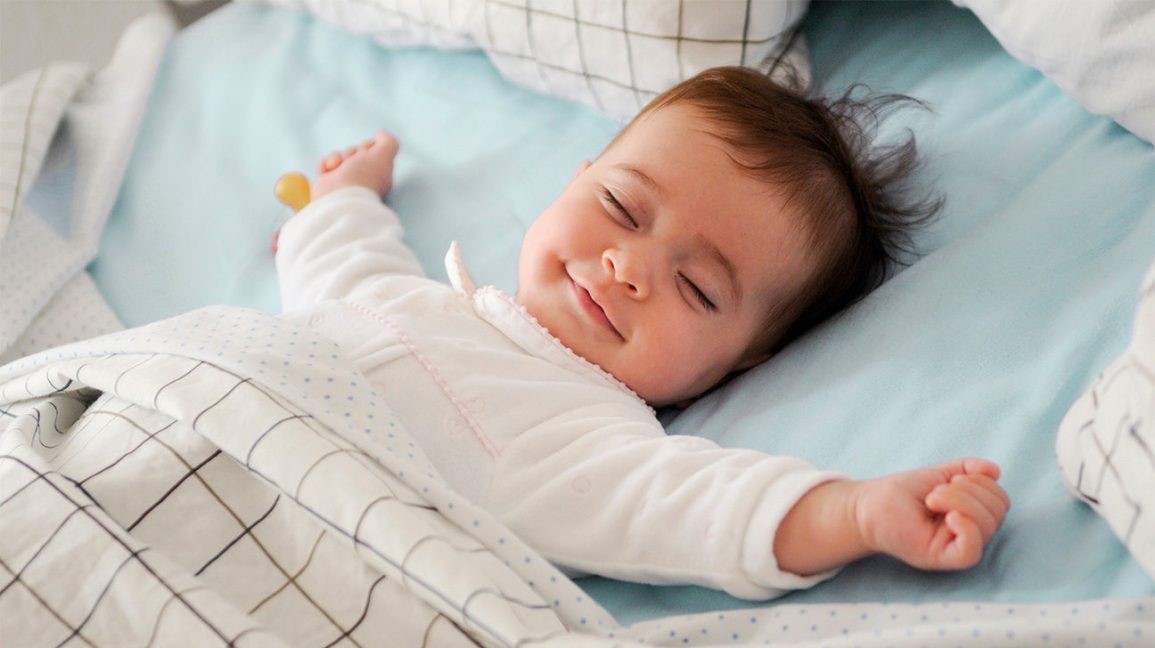
If the baby is on a full stomach, the chances of getting sleep quickly are high. The baby will offer less resistance as you soothe him or her to sleep.
Don’t Rush to Hold The Baby After He/She Cries
It is normal for babies to try. It might just be a normal bubble before he goes back to sleep. Holding him at that time will make him fully awake and the biggest puzzle on how to get him back to sleep will start. However, if the cry persists do not ignore it.
Set The Stage Right
Maintain a good temperature and light in the baby’s surroundings. Excessive light will lower the levels of melatonin by 22%. Melatonin is a chemical that is responsible for signaling the body to sleep. A good temperature will naturally soothe the baby to sleep.
Put Your Baby to Bed When Drowsy But Awake

This will help your baby associate bed with the process of sleeping. Otherwise, they will wake up at night, wonder where they are, and start crying.
Check The Diapers Before Luring The Baby to Sleep
You have to change the diapers strategically for the baby to feel comfortable. A baby will sleep easier with a fresh diaper on.
Be Keen on The Length of The Sleeping Cycles
Briefly have a look at the following table.
AGE | TOTAL SLEEP HOURS | TOTAL HOURS OF NIGHT TIME SLEEP | TOTAL HOURS OF DAYTIME SLEEP |
| Newborn | 16 | 8 to 9 | 8 |
| 1 month | 15.5 | 8 to 9 | 7 |
| 3 months | 15 | 9 to10 | 4 to 5 |
| 6 months | 14 | 10 | 4 |
| 9 months | 14 | 11 | 3 |
| 1 year | 14 | 11 | 3 |
Note the number of hours the baby should spend sleeping. In relation to this, our first point was about routine. If your baby oversleeps, this means that the whole schedule will have to be altered afresh.
Swaddle The Baby
Babies possess a startle reflex in the first 5 months, in which they feel like they are falling. This situation may make them have difficulties in finding sleep. Wrapping a soft swaddle will help to get them asleep faster.
Let the Baby Work it Out
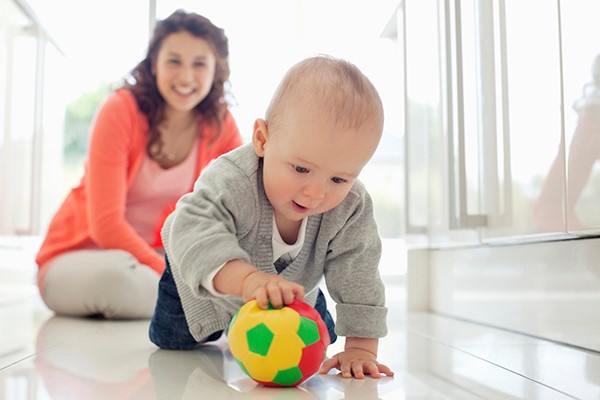
If you rush your baby to sleep immediately after feeding, you are creating a cycle that is hard to break. Letting your baby play will make him or her tired and have the urge to sleep.
Making a Quiet Time
Some quiet moments before bed will help your baby settle to sleep. If your household is noisy and active, you must devise a way to earn silence till the baby falls asleep. It takes only few minutes before the baby drifts into slumberland.
NATURAL SLEEP REMEDIES FOR BABIES
You don’t have to soothe your baby to sleep. You can perform some natural miracles and watch your baby sleep by himself. Here are some of these methods.
Natural Herbs

Set up herbs in the bedroom as they are known to have a relaxing effect. However, we have to narrow ourselves down to kid-safe herbs as this is our topic and focus. Chamomile, catnip, and passionate are some of the friendly herbs.
The research on the relaxing effects settled on the conclusion that these herbs contain certain chemicals responsible for that. For example, chamomile contains a chemical component called apigenin which lures sleep.
Essential Oils

Before we get any further, please note that essential oils should only be exposed to babies of at least 3 months and above. Essential oils create a relaxing atmosphere in a room making the baby get some natural sleep.
There are 3 major ways of using essential oils. Let’s look at them briefly.
Utilizing Diffusers
Diffusers help spray the oils in a tactical manner. Oils change when heated, that’s why we recommend having modern diffusers which do not release heat as they function. Diffusers have an added advantage of acting as humidifiers and purifiers.
–Through Massage:
There are essential oils meant for massage only. You can apply the oil to the baby to induce natural sleep.
– Through Bathing
Add 2-3 drops of the essential oil to the bath. This will make the baby feel fresh and it will be easy for him or her to get some sleep.
Rethink the Lighting in the Bedroom
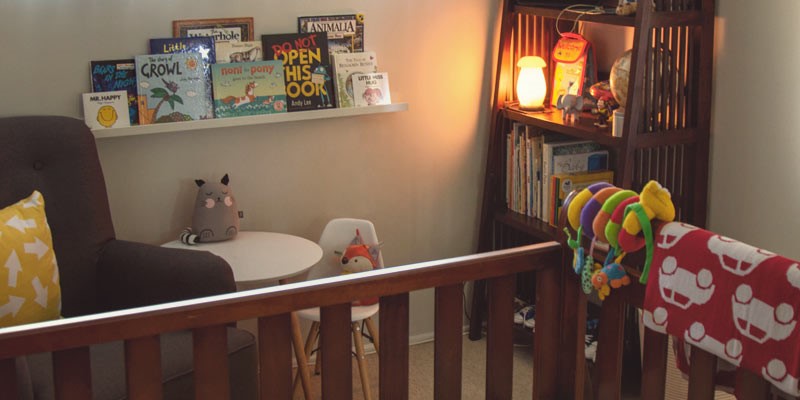
What is your overall bedroom lighting hue? Most bedrooms have florescent or white lights illuminating the whole room. There is a big reason to go dim if you want to create a cozy sleeping atmosphere during the night.
Such an environment is perfect to get a baby slumber quickly. Consider Himalayan salt lamp as it emits yellow filtered light. Do not forget to switch off the lights when the baby falls asleep.
Sun Exposure
Sun exposure is vital to babies. It triggers the body to produce melatonin which the body utilizes during the night. You can take your little one to enjoy the sun in the morning or the sunset. Mid-day sun is not good for babies as it has a stronger intensity.
The Bedroom’s Interior Design
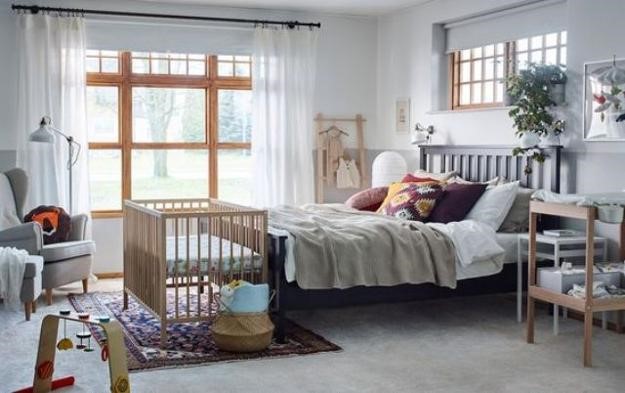
I know you already know this but there is no harm if we revisit. A room that has décor that is relaxing to the eye guarantees a comfy sleep not only the adults but also to babies. Painting the walls non-shouting colors will complement this relaxing feel.
BENEFITS OF SLEEP
Sleep Promotes Growth
The growth hormone is primarily secreted during deep sleep. Nature protects this by making sure that newborns spent most of their time asleep.
Research reveals that babies who sleep less than the average required hours have low levels of growth hormones.
Sleep Affects Weight
This is not a myth. Too little or inadequate sleep can cause kids to become overweight right from infancy.
Research conducted by Penn State Children’s Hospital on this topic revealed that parents who were coached on the techniques of getting their babies to sleep for longer periods, their babies were less likely to be overweight.
Sleep Reduces Injury Risks
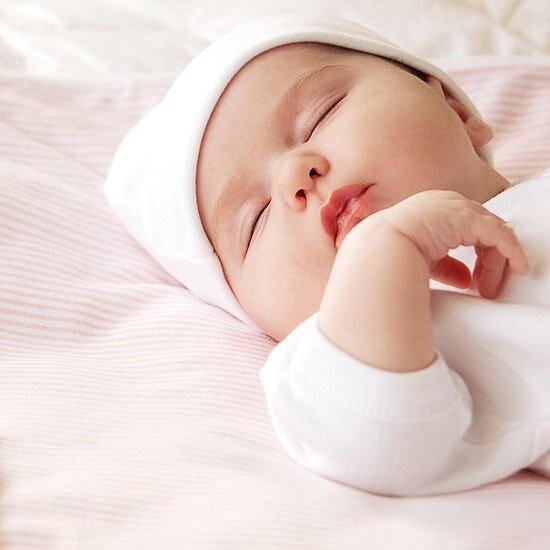
Babies become clumsy and more impulsive when they get inadequate sleep, setting them up for accidents. 90% of babies who get 2 or more injuries in half a year and that require medical attention are been found to be less sleepers.
Sleep Helps Beat Germs
Cytokines, a protein which the body relies on to fight illness and stress is produced during sleep. This chemical also makes babies sleepy. Having your baby sleep for longer hours per day will help him or her more immune to diseases.
Sleep Helps Babies to Pay Attention
Babies below 3 years of age who sleep fewer hours at night are more likely to have hyperactivity and impulsivity problems at later years. Enough sleep makes babies manage their impulses and moods so they can stay focused and alert when awake.
Sleep is Good for the Heart
Sleep protects babies from vascular complications caused by the circulating hormones. Cortisol and blood glucose which are good for the heart is actively produced when the baby is asleep.
Baby Sleep Signs

Newborns and babies get tired easily. This is always accompanied by changes in behavior. For example, the baby might suddenly become irritable, demanding, or overreactive. Once you spot these signs of tiredness, you should try to get the baby to sleep before he or she gets harder to settle.
Tired Signs of Newborns
- Yawning.
- Pulling at ears.
- Closing fists.
- Rubbing eyes.
- Zoning out.
- Frowning.
Here is a simplified table on the duration the babies should be awake. Have a look at it.
AGE | NO. OF HOURS THAT BABY SHOULD BE AWAKE |
| 3-6 months | 1.5–3 |
| 6-12 months | 2-3 |
| 12-18 months | 4-6 |
| 2 years old | 5-7 |
SLEEP RELATED to INFANT DEATHS
There are two major categories of these infant deaths. Let’s analyze both of them.
Suffocation Attributed to Soft Bedding, Overlay, and Wedging
Unintentional and accidental suffocation is the leading cause of infant injury deaths. Soft beddings such as pillows, blankets, and cushions can make the baby sink in and lack airways to oxygen. Overlay deaths occur when babies are compressed.
The neck and chest of an infant are so sensitive and harming them may lead to death. Irregular sleeping surfaces such as ill-fitting mattresses bring about wedge deaths.
Prevention
Parents should be extra careful when handling the baby. How to get a baby to sleep should not have an obvious answer. One should be well informed on the topic of baby beddings.
Sudden Infant Death Syndrome (SIDS)
Sudden Infant Death Syndrome (SIDS) is the unexplained as sudden death, usually during sleep, of a seemingly healthy baby. This syndrome is common in babies of 12 months and below. SIDS is closely linked with the defects in the part of the infant’s brain that controls breathing and arousal from sleep.
Causes of SIDS
- Brain Defects: We have already mentioned this in the above sentence but let’s repeat it once more. If the brain portion that controls breathing and arousal from sleep has defects, chances of the baby contracting SIDS are high.
- The Sleeping Positions: Making the baby sleep by the stomach or sideways might bring breathing complications. The best way to place babies is by making sure that they are on their backs.
- Uncontrollable Risk Factors Such As Sex, Age, and Family History: Boys are more likely to die of SIDS. At the age of 2 to 4 months, that’s the time infants are vulnerable to get this syndrome. Babies who have had siblings die of SIDS are at risk of contracting the same.
Prevention of SIDS
- Place your baby to sleep on his or her back. We have already discussed this in (b) above.
- Breastfeeding for 8 months lowers the risk of SIDS
- Evidence indicates that immunization against other diseases prevents SIDS.
- Do not overheat the baby. Overcovering your baby might give him or her unnecessary heat leading to death.
- Have the baby sleep in your room. This will allow you to have continuous checks as the baby is asleep.
COMMON QUESTIONS ON GETTING A BABY TO SLEEP
There are so many questions on this topic of settling a baby. Let’s focus on the most common ones.
What is Considered Sleeping Through the Night?
What is the true definition of sleeping through the night? This definition is ambiguous as it varies from one person to another. Some mean sleeping 8 to 10 hours with no feedings.
Others mean that 1 or 2 feedings are inclusive in the sleeping hours. This entirely depends on your perspective. What do you exactly mean when you say ‘sleeping through the night?’
When Do Babies Sleep Through The Night Without Feeding?
At around 4 months, most parents start noticing that their babies are able to stay for longer stretches without feeding. At 7 months, the baby will be able to sleep through the night without crying for food. However, take note that we have already said that the term throughout the night is quite ambiguous.
When Do Babies Start Sleeping Longer Than 3 Hours?
At 4 months, most babies begin to show preferences for longer sleeping sessions. By 6 months, babies can go 5 to 6 hours without the need to feed. We can say at this point that they are ‘sleeping through the night’
How Long Should A One-Month-Old Sleep at Night Without Eating?
A one-month baby is still very volatile. This is not the time to limit the number of times the baby should be feeding. Breastfeeding every 2 to 4 hours is recommended. On average, a one-month-old baby should be breastfed at least 12 times a day.
How to Get Baby to Sleep Without Being Held
Have you ever had or you are experiencing this problem? You try to lay your baby down as gently as you can, but the second the pajamas hit the sheet, the screaming drama starts.
Though little they are, they find arms welcoming and comforting more than the quiet and cold crib. To get the answer to this, kindly revisit ‘natural sleep remedies for babies’- a topic we discussed earlier in this article.
How to Get One Year Old to Sleep in A Crib
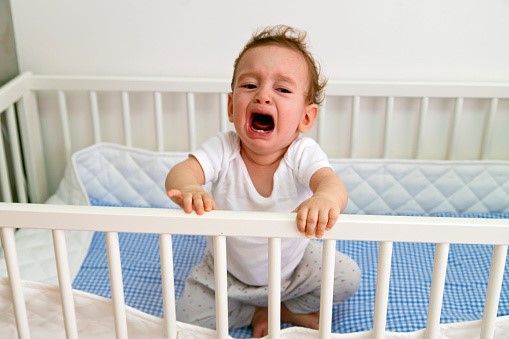
For now, let’s all agree that babies are funny. They will fall asleep in your arms, on a walk, during feeding, in the car- literally anywhere. The drama will start immediately you try to place them in their little homes (cribs) to sleep.
Gradually train your baby to sleep in a crib by placing him or her there while asleep. Although he will resist after waking up, he will by time get used to the crib.
How to Improve Baby Sleep
Ensure that the beddings are comfy. It is advised that the beddings are changed and cleaned on daily basis. Regular checks on the baby will improve his sleep as you will get to correct his sleeping position before he feels uncomfortable and wakes up.
HOW TO HANDLE A CRYING BABY
Change The Scenery
Babies too get tired of the same thing. You can take a crying baby outdoors to change the environment. Alternatively, you can change caregivers. Hand the baby to the husband, grandma or whoever close is in the vicinity.
Try Out Making Some Noise
Trust me, this works. Turn on white noise when the baby starts crying. This white noise will soothe him to sleep. Try a fan, vacuum cleaner, a white noise machine, or even a downloaded app.
Play Tunes
There are different genres of cool music and lullabies which when played will relax a crying baby. Music has the ability to calm the nerves and decrease the respiratory rate. Infants get soothed by rhythms from familiar voices.
Hold The Baby in Your Arms
This will give the baby reassurance that someone is minding him and he will soon stop crying.
BABY SLEEP EQUIPMENT
You might have all the tips on getting the baby to sleep but they may fail to work as you may lack the baby sleep essentials.
We have talked so much on this topic of babies and sleep. let’s wrap it up by looking at some of the equipment needed for the baby to slumber soundly.
A Crib
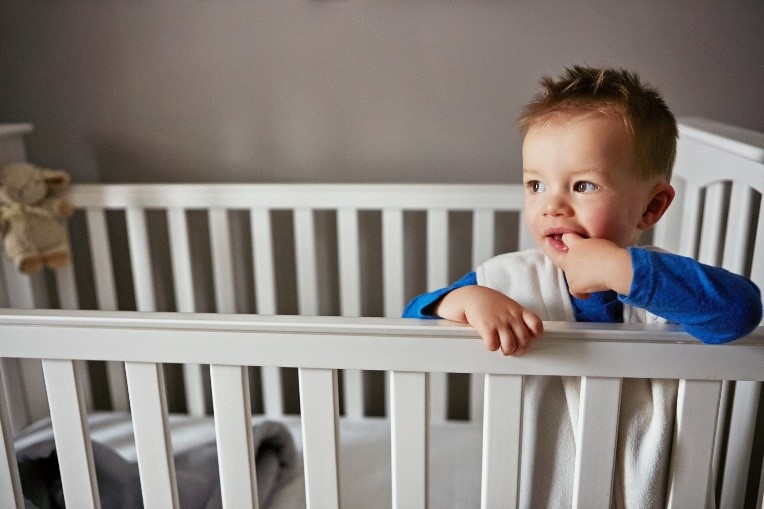
This is so obvious though we are going to mention it. As the months pass, soon you realize that the baby needs to vacate the parents’ bed.
Go for a spacious and quality crib. Do not feel the pain of spending a fortune on your little angel. Most importantly, ensure the crib addresses safety precautions to the occupant.
Electronic Baby Monitor

You too need some rest when the baby falls asleep. You can leave the stress of watching over the baby every second to the electronic baby monitors. They are usually mounted within the baby’s crib and detect changes in the baby and gives you a signal.
Right Baby Attire
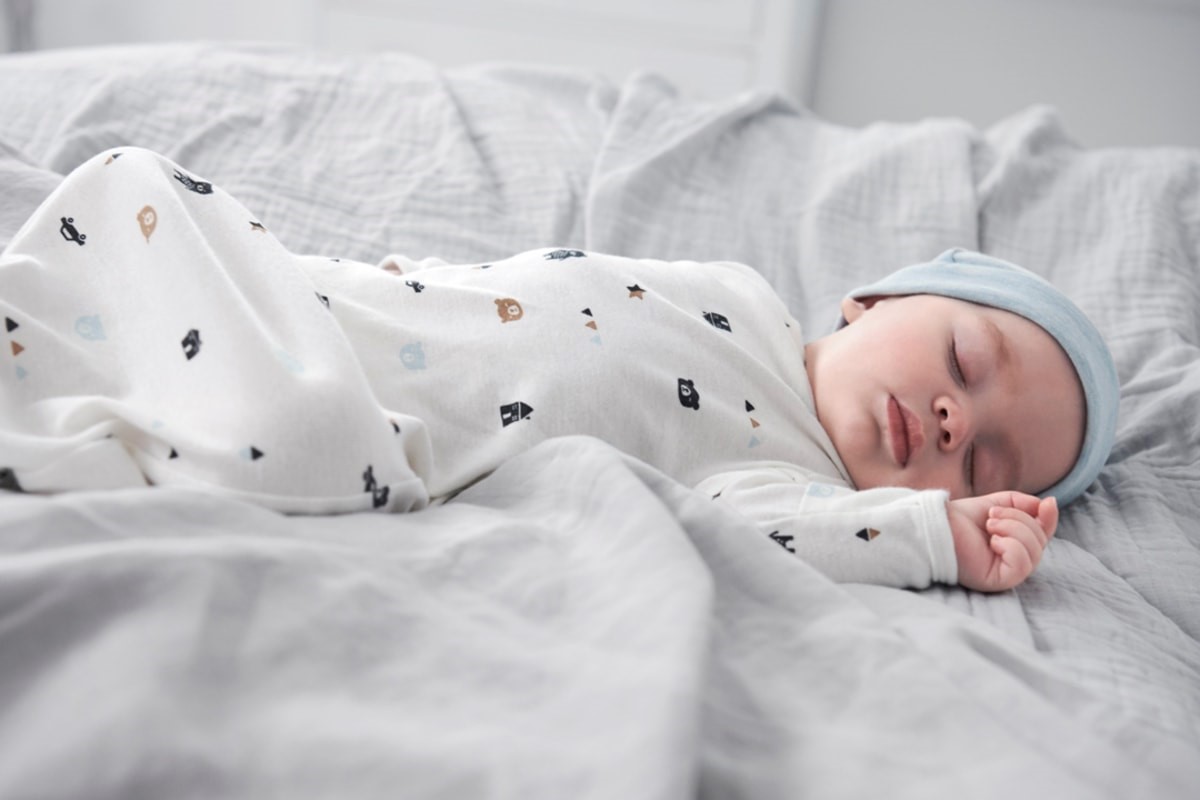
Don’t be ignorant to dress your baby anyhow for sleep. There are different types of baby pajamas that are layered to correspond to different seasons. The winter pajamas are different from the summer ones. Have several of them for alternating as they are only reused after washing.
Traveling Sleep Sacks
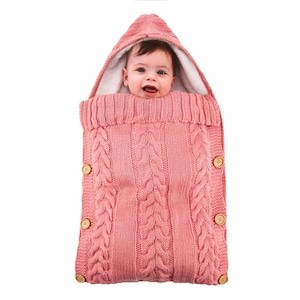
Sometimes babies fall asleep when you still want to move around with them. Baby trolleys and sleep sacks come in handy at these moments. You can place the baby there and move around with him comfortably as he is sleeping.
Comfy Beddings
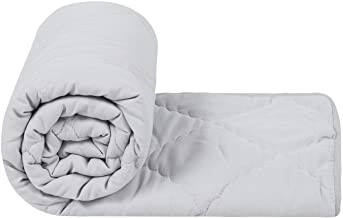
Make sure the beddings are inviting. A comfortable baby will drift into sleep easily. Cotton sheets and duvet will make the baby linger in sleep. Avoid pillows as the baby can sink into them and get choked.

